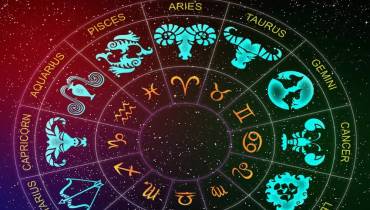Disruptive Mood Dysregulation Disorder: Causes and How to Deal with It

Disruptive mood dysregulation disorder is a fairly new diagnosis that was first diagnosed and published in the Statistical Manual of Mental Disorders (DSM-5) in 2013. It refers to a childhood condition where kids between 6 and 18 years have extreme irritability, anger, and frequent, intense temper outbursts.
Although irritability, moodiness, and anger are common developmental issues in kids and adolescents, symptoms of this disorder go beyond being a “moody” child. Children with the disorder experience severe impairment that requires clinical attention, according to the National Institute of Mental Health.
Disruptive mood dysregulation disorder (DMDD) begins in childhood and is characterized by persistent irritability, anger, severe and recurrent temper tantrums. It is essential to identify when the situation is starting to get out of hand in your kids. Children with DMDD are more likely to develop problems with depression or anxiety in adulthood, per the American Academy of Child and Adolescent Psychiatry.
For diagnosis with DMDD, a child must display symptoms of the condition steadily for 12 or more months, including severe temper outbursts and trouble functioning due to irritability in more than one place, such as at home, school, or with peers.
DMDD may happen gradually such that parents and guardians of children with DMDD may misinterpret it for a typical teenager tantrum. But there is a fine line between a typical tantrum and a tantrum that impairs kids’ functioning and performance, disrupts relationships, and shows up as a symptom of DMDD.
Needless to say, having a child with DMDD can be very challenging. It is important to seek professional help for the child and get all the information, support, and assistance you need.

So, what causes DMDD, and how can you deal with it?
Causes of Disruptive Mood Dysregulation Disorder
Since DMDD is a relatively new diagnosis, research is still ongoing to identify the exact causes and effects. Some studies on children aged between 2 and 17, however, show that children with DMDD may have a history of chronic irritability. This includes children who may have struggled to deal with frustration and temper from a young age.
Researchers continue to work on isolating the causes of DMDD in children and adolescents. However, there are few findings that the experts and doctors agree on that can explain the probable causes of this disorder.
Some of the possible causes include:
- A child's genetic history and makeup. These are some of the main determining factors that can cause DMDD.
- Family history of mental health issues like anxiety disorders, depression, and substance use disorders.
- Heritable personality conditions that can lead to the onset of DMDD in kids and adolescents.
- Chemical abnormalities in the brain.
- Sometimes a different disorder like underactive thyroid glands can cause DMDD.
Anxiety, depression, complex behavior, irritability, and moodiness are a few of the associated traits that are commonly spotted in children with this condition.
How to Deal with Disruptive Mood Dysregulation Disorder
Again, researchers are still determining which treatments work best. But, a child diagnosed with DMDD can be treated with behavioral therapy or a combination of medication and behavioral therapy.
Mental health professionals can also help teach the child and their parents different strategies for dealing with emotions.
It’s recommended to inform and work with the child's school and/or family to understand and accommodate the condition and deal with it compassionately.
Treatment Options
Treatment options for DMDD will be individualized to the needs of the particular child and his or her family. It may include:
1. CBT – Cognitive Behavioral Therapy
CBT teaches the child to identify and manage their temper and anger before it tips over and sets off a tantrum.
Cognitive-behavioral therapy also helps deal with depression and anxiety disorder which is common in people with DMDD.
2. Medication
Though therapy alone can effectively manage and treat DMDD, your doctor may prescribe medication if the symptoms are persistent.
Many drugs prescribed for depression and Attention-deficit/hyperactivity disorder (ADHD) also help with DMDD too.
3. Parent Training
In the parent training sessions, parents are taught and learn to identify triggers, positive ways to respond to outbursts, and how to praise, affirm the child’s positive behaviors.
Parents and guardians also learn ways to limit the time arguing with kids with DMDD during breakdowns and episodes.
4. Stimulants
Stimulant medications are also effective in treating DMDD, as many kids and adolescents with DMDD also have ADHD.
Research findings have shown that these stimulants can help ease irritability in kids and improve their mood to an extent.
In Conclusion
Getting proper support and help for kids with DMDD can ensure they develop positive behavior and ease parents, siblings, teachers, and peers' distress in dealing with them.
In case you find these symptoms in your child, don't hesitate to schedule an appointment with a qualified medical professional for treatment.




















